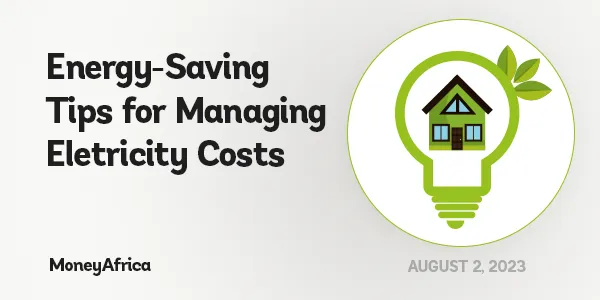Good Morning 😃
How are you doing?
Recently, the Nigerian Electricity Regulatory Commission (NERC) and eleven Electricity Distribution Companies (DisCos) proposed a significant 40% increase in electricity tariffs. However, this move was met with opposition from the National Assembly, comprising the Senate and the House of Representatives. In response to public concerns, the National Assembly called for the proposed tariff increase to be put on hold, allowing Nigerians some breathing space. Although the proposed increase is reportedly still being fine-tuned, with figures ranging from 23% to 30%, the National Assembly emphasised that any tariff hike at this point would negatively impact the well-being of Nigerians who are already grappling with the effects of petrol subsidy removal.
Given the continuous escalation in utility costs, particularly electricity, it has become challenging for individuals to adhere to the financial rule of not allowing rent to exceed 30% of their annual income. Consequently, many households are seeking effective ways to save on their electricity bills and manage their expenses better.
Here are some practical tips to help you save on your electricity bill:
- Ask the right questions. Before you even consider moving into an apartment, inquire with the agent or landlord about the electricity setup. Ensure that there are no outstanding debts attached to your meter, whether you are metered or non-metered customer.
- Turn off lights when leaving your home. One sure way to reduce electricity consumption in your home is to always switch off the lights when leaving a room. It is easy to forget to do this every time, but you can cultivate a conscious habit of doing so.
- Unplug devices: When not in use, unplug electronic devices and chargers. Many devices draw power even when turned off, contributing to “phantom” energy usage.
- Use energy-efficient bulbs. Switching to energy-efficient lighting can also save you money on your energy bills. LED light bulbs, for example, use up to 90% less energy than traditional incandescent bulbs. They also last longer, so you won’t have to replace them as often.
- Use fans instead of AC. We all love the soft life of having an air conditioner in our homes, but they don’t have to be on all the time; otherwise, one would have to deal with a high electricity bill. You can have ceiling or standing fans to complement your ACs in your sitting rooms and bedroom.
- Opt for cooking gas. Choosing to cook with gas presents a more cost-effective option compared to using electricity for cooking. With consistent hours of cooking time, electricity bills for both metered and non-metered consumers can become exorbitant. Considering the prevailing economic challenges in Nigeria, relying on electricity for prolonged cooking is not a sustainable choice for many households.
- Use solar panels. If you can afford it, install a solar panel in your home. One efficient way to reduce the cost of electricity is by installing solar panels. Solar power can supplement your electricity needs and reduce dependence on the grid.
In conclusion, saving energy doesn’t have to be difficult or expensive. By making small changes to your daily routine and using your appliances more efficiently, you can save money and reduce your carbon footprint.
***
Would you like to know the state of your finances?
Take this test to see how you are doing financially
***
Do you know that we have our own podcast? It’s MONEYTALKS!💚
Here’s a link to listen to all the amazing episodes we have!
***
Thank you for reading Money Africa’s Blog.
Please feel free to share it.
MoneyAfrica premium plan
Are you a mid to high-income earner? Do you find communities a bit too busy? You should sign up for our premium plan.

You can learn more about that here.
***
We often get questions regarding how to plan your finances to align with your relocation plans, especially for students seeking to further their studies. As always, we have heard you, and we have put together an e-book to help you navigate this. Follow this link, to get your FREE copy of the e-book: The Japa Encyclopedia.
***
Get our annual subscription and learn more about investing safely and building a solid portfolio in 2023.
Don’t forget to:
- Join our community, if you want to smash your 2023 financial goals. It takes at least 30 days to build great habits that will last you a lifetime. So why not start now? There is a lot you can achieve.
- If you would like to document your financial journey in 2023, then our journal would be an excellent fit for you. It costs ₦7,500 (excluding delivery).
- Get a budget sheet to track your monthly expenses. Click here
- Get an investment tracker to be on top of all your investments. Click here
MoneyAfrica is a financial literacy platform. Our goal is to make everyone better with their finances.
We do this by engagements via our:
– social media handles
– platforms for paid community members (for adults and students)
– webinar sessions with corporate clients
Would you like to join any of the communities? Please click here
Would you like us to hold a webinar for your company’s staff? Please send an email to info@themoneyafrica.com


